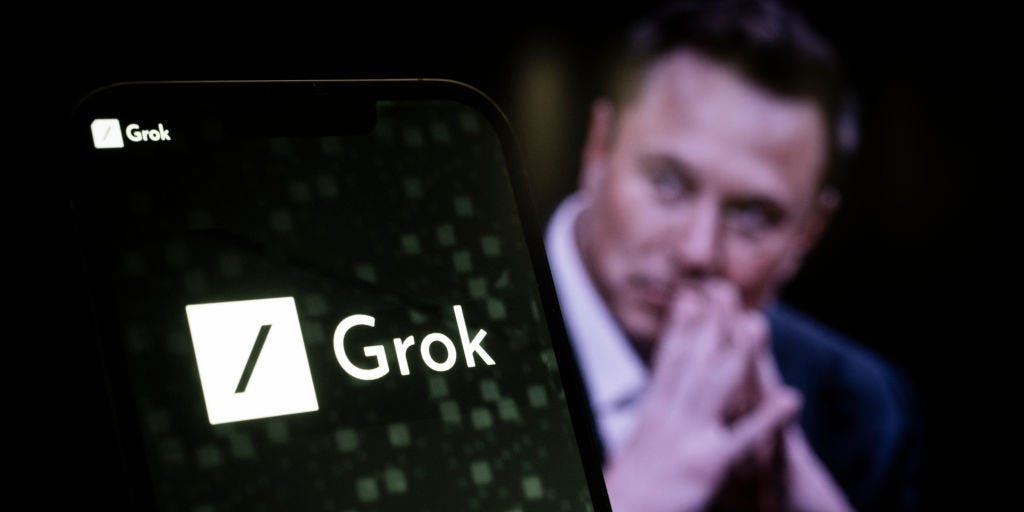What are the odds that Elon Musk eventually ends up with $1 trillion worth of Tesla shares, assuming his new pay package is approved? We asked the AI chatbots to analyze his chances.
Tesla’s proposed compensation package for its CEO hinges on several ambitious milestones for the full payout: The company reaching an $8.5 trillion market cap, $400 billion adjusted EBITDA, and extensive deployments of robotaxis, full self-driving (FSD) subscriptions, AI Optimus robots, and EV sales.
It’s a tall order — and exactly the kind of challenge that Musk seems to savor. After all, he previously proved the haters wrong, hitting all 12 of the milestones required in his old pay package in 2023 to unlock its full value before it got tangled up in a court battle. (This new pay package still needs to be voted on by Tesla shareholders before it becomes official.)
Robotics and AI are key in Tesla’s new Master Plan — so we asked Grok, ChatGPT, and Gemini to analyze Tesla’s performance and determine what the AI thinks Musk’s chances of success are.
Grok was the most confident, while Google’s Gemini put Musk’s likelihood at “effectively zero.”
Here’s what the AI chatbots said.
Grok was the most confident in Musk
xAI
Of the three chatbots, Grok from xAI — Musk’s AI company — was most optimistic about Musk’s odds.
Grok said there was a 70% chance that Tesla reached the vehicle delivery threshold, and a 35% chance that it reached the necessary number of FSD subscribers. For the Optimus robot sales and robotaxi milestones, it estimated 80% and 50% odds, respectively.
xAI
For the EBITDA and market cap expectations, Grok gave Tesla a 30% and 25% likelihood that it would reach those goals.
Initially, Grok estimated that there was a 15% chance overall that Musk would meet all the requirements to score the full $1 trillion payout within the next 10 years. After uploading Tesla’s SEC filing to Grok, the chatbot upped its probability to 25%.
Related stories
ChatGPT offered the middle opinion
OpenAI
It’s no secret that OpenAI CEO Sam Altman is not Elon Musk’s biggest fan at the moment. After the duo cofounded OpenAI together, they entered a longstanding feud, with Musk’s companies launching multiple lawsuits against OpenAI.
And while you might think that since Musk’s Grok chatbot cast the most favorable odds, ChatGPT might have the most pessimistic take, ChatGPT actually had the middle levels of optimism about Musk’s chances among the three chatbots.
ChatGPT gave 20% and 25% odds that Tesla would meet the vehicle delivery and FSD subscriber goals. It was most confident in the robotaxi milestone, at 40% odds, and gave the bot milestone a 30% likelihood.
In terms of EBITDA and market cap, ChatGPT was less confident in Musk. It gave Tesla 10% odds of reaching $400 billion EBITDA, and 5% odds of reaching an $8.5 trillion market cap.
Overall, ChatGPT estimated that there was a 2% chance that Musk would hit every target, a percentage it stuck with after reviewing the entire SEC filing.
Gemini said Musk doesn’t stand a chance
Of the three chatbots, Google’s Gemini thought Musk was the most likely to come up short.
While each AI was given the same prompt, Gemini framed its answers about Musk’s likelihoods in “less thans.” There was a less than 10% chance Tesla reached the vehicle delivery goal, it said, and less than 20% chance the EV maker hit the desired active FSD subscribers. As for bot and robotaxi milestones, it estimated less than 15% and 5% odds, respectively.
Gemini was similarly pessimistic about Tesla’s financials. It gave the company less than 5% odds for reaching both EBITDA and market cap goals.
The odds of Musk meeting all of these goals: “Effectively zero,” Gemini said. When I followed up by asking Gemini to review the entire SEC filing, it claimed that it was ” impossible to provide a numerical probability” because there were too many unpredictable factors.
It’s not an all-or-nothing payout
While Musk’s proposed pay package requires the CEO to hit lofty targets in order to receive the maximum compensation, the good news for Musk is that he can unlock smaller payouts along the way.
Take Tesla’s market cap, for example. The first “Market Capitalization Milestone” in the proposal requires Musk to get Tesla to a $2 trillion valuation, with subsequent milestones at every additional $500 billion in market cap up to $6.5 trillion — after that, it’s every additional $1 trillion added in market cap up to $8.5 trillion.
Tesla’s proposed “Adjusted EBITDA Milestones” follow a similar progression, with the first achievement being hitting $50 billion of adjusted EBITDA and the final being sustaining $400 billion of adjusted EBITDA “over three non-overlapping periods, each made up of four consecutive quarters.”
Of course, it’s entirely possible Musk figures out a way to hit all of the milestones, regardless of what AI pegs his chances at. But even if he doesn’t, there’s still plenty of potential payouts he can receive.


